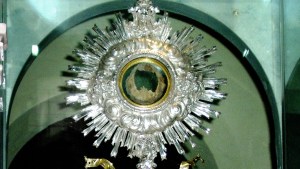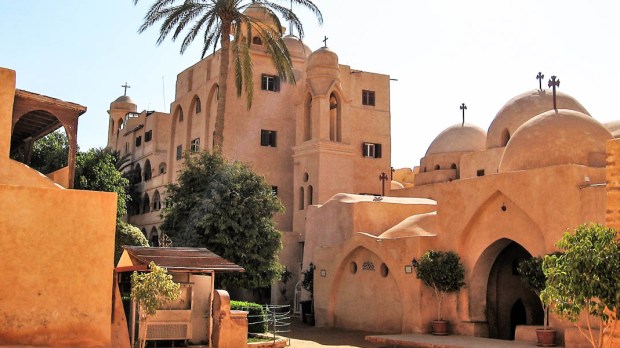During the 3rd and 4th centuries many men and women were inspired by the example of a humble hermit now known as St. Anthony the Abbot and left all they had to lead a life of prayer and contemplation in the Egyptian desert.
One of the main centers of this radical type of monastic living was an area known as Scetis, located in the northwestern Nile Delta. According to an ancient document called the Sayings of the Fathers, there lived a monk in this community who had doubts about the presence of Jesus in the Eucharist at Mass.
He would say to his fellow monks, “The Bread we receive is not really the Body of Christ, but is a symbol of that Body.” Confronted by members of the monastic community about this belief, he replied, “Unless you can show me evidence, I will not change my mind.”
Later on during a Sunday Mass when the disbelieving monk said the words of consecration over the Eucharistic host, a little boy appeared in his hands instead of the consecrated bread. It was clear to the monk that the boy was the Child Jesus and at the time when he was to place the host in his mouth it changed back to a host. At this unexpected miracle the monk declared, “Lord, I believe that the Bread is Your Body, and that Your Blood is in the chalice.”
This miracle recalls a similar connection that many different holy men and women have expressed over the centuries. They believed that every Mass is like Christmas, when Christ comes down from heaven to be on our altars. In this way, every day is a “Christmas” day, when Jesus “dwells among us” under the appearance of bread.

Read more:
4 Incredible Eucharistic miracles that defy scientific explanation
Read more:
The Real Presence? How Can We Be Sure?

